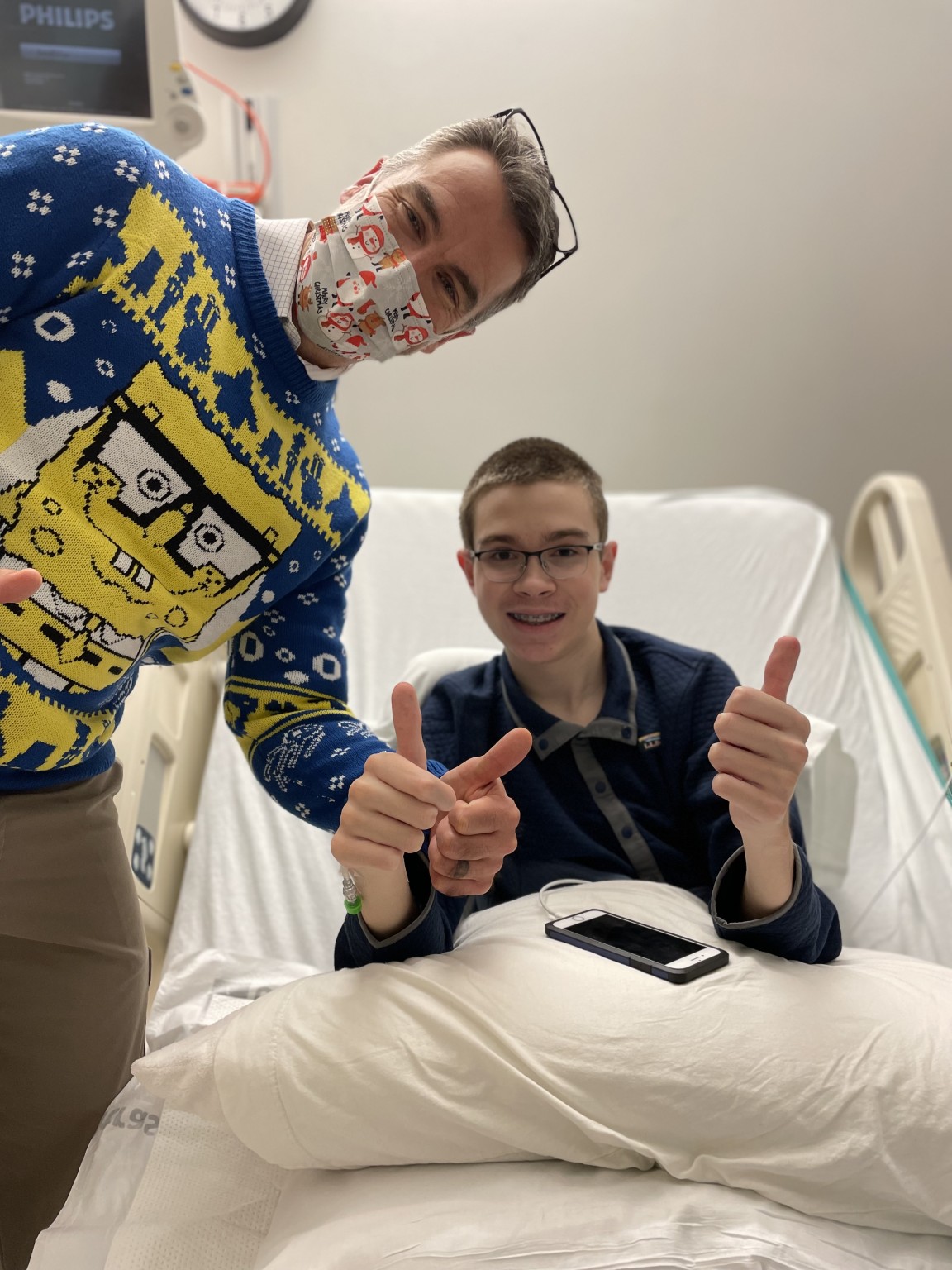“He loved every doctor and nurse, every X-ray tech, everyone”
Ben, who is 16 years old, was diagnosed with an advanced form of a Chiari malformation: At the back of his skull, part of his brain was squeezing out to the spinal canal, pressing on his brain stem. His symptoms were the result of pressure on parts of his brain and spinal cord. Ben’s doctors think he was probably born with the condition; it just took awhile for the symptoms to show up. “Once they did show up, they showed up fast,” says Devin.
There’s a procedure to correct the problem, but it wasn’t as simple as just scheduling Ben for brain surgery. He’d lost a lot of weight, so he wasn’t strong enough for surgery. To complicate matters, the pressure on his brain stem was affecting his ability to breathe and swallow, a dangerous problem.
Getting him ready for surgery, safely, required the coordinated efforts of numerous specialists: Connecticut Children's Divisions of Neurosurgery, Ear, Nose & Throat (ENT), Gastroenterology, Pulmonary Medicine – and others. The Pediatric Surgery team placed a feeding tube in his stomach to get him additional nutrients, helping him put on the weight he needed over the course of a month. The Aerodigestive team (part of the Division of ENT), led by Nicole Murray, MD, closely monitored his ability to swallow.
“This is a great example of beautiful collaboration among teams,” says Dr. Murray. “Everyone worked together to anticipate trouble and plan for it, and do all the right things for Ben.”
The slew of tests and preparations could have been overwhelming for Ben and his family. But as an integrated health system – ranked among the nation’s best by U.S. News & World Report – Connecticut Children's made the experience as easy as possible.
Ben, doing great as he recovers from surgery.
“Everyone at Connecticut Children's was awesome,” says Ben. “All the help made me feel so much better.”
“They explained everything really well. I never felt confused. I never felt rushed,” says Devin. “They also knew how to treat Ben. He’s 16 – he’s not a little kid. They talked to him in an age-appropriate way. They knew how to joke around with him and make him laugh. He loved every doctor and nurse, every X-ray tech, everyone he came in contact with.”
When it was finally time for the surgery, Ben didn’t flinch. “He’d already been through so much, but he didn’t complain,” says Devin.
“It was nerve-wracking, but I knew it was something positive that would help me,” says Ben.


